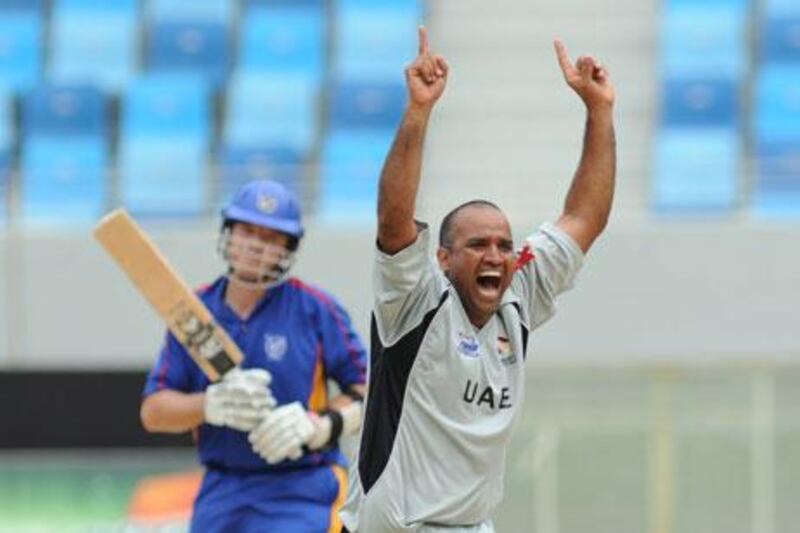NEW DELHI // One-day 50-overs cricket returns to its spiritual and financial home next week when India, Bangladesh and Sri Lanka host the World Cup after a 15-year gap.
Over-priced tickets and excessive security helped to sap the show of its soul in the Caribbean four years ago and the subsequent popularity of Twenty20 cricket has also cast doubt on the future of the 50-overs version.
Bearing all these factors in mind, the International Cricket Council (ICC) believes the Indian subcontinent is the ideal place to stage the 2011 tournament.
"I think hosting a World Cup in the subcontinent is half the battle won," ICC chief executive Haroon Lorgat told Reuters.
I do believe that we should not have, in the subcontinent, the challenges we faced in the West Indies."
Lorgat said he did not agree that 50-overs cricket was in trouble.
"It is fair to say 50-overs cricket has enjoyed a lot of support in the last few series, and the recent one (of) India versus South Africa and the one between Australia and England.
"I think the fear that people had about 50-overs cricket has not materialised. It's still got a lot of attractions."
However, an opposing point of view was voiced by cricket historian Boria Majumdar.
"This World Cup will determine whether the one-day format will live on," Majumdar told Reuters.
"If this is a success, which would depend to a large extent on how India and other co-hosts fare, it would rejuvenate the format. On the other hand, a failure would write the epitaph of the 50-overs format."
The Febuary 19-April 2 tournament is already gripping the popular imagination. "Life will come to a standstill, especially in India where the World Cup will no doubt capture the imagination of the nation where cricket is the biggest single unifier," Majumdar said.
The situation will be similar in Bangladesh.
People queued overnight in Dhaka outside banks selling World Cup tickets and on Jan. 20 hundreds of fans in Mashrafe Mortaza's hometown Narail held a general strike to protest against the former captain's omission from the World Cup squad.
Having learnt a lesson from the West Indies experience, the Indian cricket board has decided to distribute free tickets among students to fill stadiums in matches not involving the home team.
"The real challenge is to bring in people for non-India games and one of the suggestions is to bring in school and college children," tournament director Ratnakar Shetty said in December.
Administrators will also need to keep an alert eye on possible corruption resulting from the illegal gambling industry in India.
Legal gambling in India is restricted to horse racing while casinos are allowed in only a couple of states but that has not deterred the illegal syndicates. Although exact figures are not available, media reports say every India-Pakistan one-day match attracts bets worth $20 million (Dh90m).
Majumdar, however, plays down the threat.
"I don't think this World Cup would be more vulnerable to match-fixing than any other. Make no mistake, there will be a lot of betting going on but I don't think it would spill over to something like match-fixing," he said.
"There is too much at stake, so I don't think players would squander their reputation in this era of 24-hour TV channels and constant media glare."





